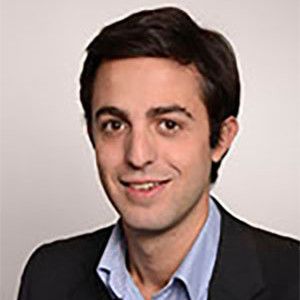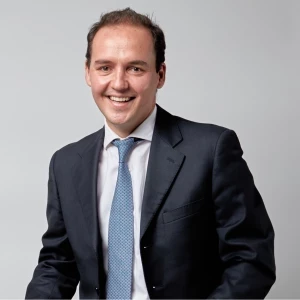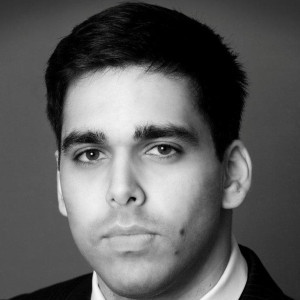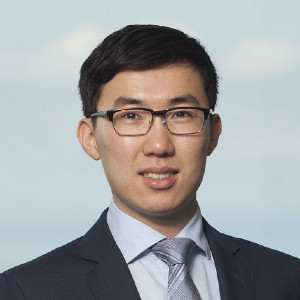Hi! Due to the fact that I participated in several business courses (multiple day recruitment events) in the past, for which the selection procedure resembled a normal first round, I can now move straight on to the second (final) round interviews at several consulting firms. It's been several years since I had the first round interviews and so I'm feeling a little rusty to begin with, but I'm also wondering whether these final round interviews will differ from the first round type of interviews. Is the focus different? Should I practice differently? Do they look for different things? Any tips would be much appreciated!
Difference between first round and second round interviews?


Hi Jasmijn,
The focus of the first round is more on your personal fit and individual behavior combined with a case interview. In the second round you will probably have two further interviews - case interviews which relates more to your qualitative and quantitative skills with less personal fit. And the final round - with partner - will be more focused o the case from partner experience and your personal fit to corporate culture.
Hope it helps.
Good Luck!
If you have any further questions, don't hesitate to contact me.
Best,
André

Hello,
Depending on the firm the format of the second round may vary (sometimes first round is computer based assesment), but for the sake of this discussion let's assume that second round will be a standard fit interview + case study.
Overall we could sum up the difference with the previous round to a higher level of expectation :
- in many cases, you will be interviewed by consultants with higher seniority (manager/principal), and therefor higer expectations
- while first round is litteraly a first filter, some candidates are invited to second round with a performance that would not be accepted on secound round. The feedback receiced from first round is then valuable to know what area will be specifically tested. In your specific situation its would be a good sign according to me.
- the dimensions tested in particular in secound round would be : confirm there is a real fit with the firm and the candidate has demonstrated a strong presence / and test case study performance especially on structuring and leadership abilities.
Don't hesitat to reach me out if you have more questions
Best
Benjamin
Thank you so much for these anwers! Do you reckon there's a specific way to prepare for second round interviews? I mean differently from preparing for first round interviews?


Completely agree w/ Matteo, I was just coming to basically write the same thing. Also, the partners may just decide to push the interview in a different direction based on their own interest: They own the company, they do what they want :)
As a result, your interviews might be a little less structured. In my particular case for example, I don't think I even did a true case with the partner - we did talk about a variety of topics however, during which he was able to assess some of my social skills, general culture, creativity... all things that are potentially important to create rapport with a client.
Hey Jasmijn,
Agree with both colleagues with an additional remark. Due to the seniority of the interviewers, not only questions will be more strategical but they will aim other skills ("softer" like empathy, communication...) and specially: If you fit the firms' values. So, express explicitly your adherence to ethical and other values, when possible, and above all, be yourself.
Good luck

Hi Jasmijin,
from my experience I believe there are 2 key differences between a first round and a second round, at least regarding Mck, Bain and BCG.
1) during the first round the interviewers will be senior managers and/or junior partners, wheather in the second round you will generally meet senior partners or directors
2) Therefore since the two profiles mentioned above have a different seniority during the first round it is more likely that you will be asked more analytical questions and the business cases will be more detaild (e.g. estimate the market share at the endo of the third year knowing that.. ecc.), on the other side in the second round the you might have to tackle more broad and strategical questions (e.g. what would you outsource in a marketing department)
I hope this is useful!
Good luck!
Here's what you can expect in Round 2:
1) Focus on your prior work ex/ background: This time, the interviewers will take longer to understand your background, its relevance to consulting, etc. Use the STAR approach to prepare content-rich, succinct stories about your past.
2) Drill-down on areas that went 'so so' in R1: Even though your R1 went well, were there areas you could've done better on? An obvious one is math, but did it take you a while to get to the right answer, or did you feel at times you were rambling, or that your questions at the end weren't strong? Make sure to think thru this and "right the wrongs" (even if there were few to no wrongs, there would always be areas for improvement) in your R2 by nailing these out of the park. You can't repeat any error or issue in R1 also in R2.
3) Speak like you're speaking to a senior client: Indeed, these will be senior folks (P, Pri) and you need to come across as mature, confident, and intelligent. Do not be informal; be switched on and present like you would to a major client.
4) Airport test: This is truly where the airport test is important - are you engaged, insightful, charming, interesting? Would a Partner be OK to be stuck at an Airport with you and not stay on his laptop all the way?
Good luck!

Hi,
Secondly, in the final round, I would expect a bit more structured and demanding approach to the fit part. The partners in the last round are more experienced and they will challenge every single detail of your story. So make sure that you have a couple of backup stories. Thus:
1) Make sure that you've prepared everything: A story about yourself, motivational questions and the main FIT stories. Also, don't forget about your questions to the interviewer - you'd rather have an interesting conversation and score some point instead of a simple Q&A session
2) Then go through each story and think of the additional questions the interviewer may ask. It’s important since additional questions will take up to 50% of the interview. Try to remember the main details and facts and make sure that you know how to explain the key concepts quickly. Test your stories with your friends, ideally consultants, and ask for their feedback. There can be multiple groups of additional questions:
- The interviewer may be interested in details about the context
- He may want to check whether this was your effort or more sort of a team effort.
- “Have you faced any difficulties while implementing your solution?”- Typically an interviewer would like you to tell him how you’ve overcome those difficulties.
- Your interviewer will check how real your story is. You should be ready to provide even more granular actions, key milestones and a breakdown of potential effects.
3) Now work on 3-6 backup stories. During your interviews, you can then use these stories or adapt these stories to the additional questions your interviewer asks you.
You may be interested, why you need to prepare several stories for each question? At the end of the day, it's not that easy to come up with all of these stories. I've answered here: https://www.preplounge.com/en/consulting-forum/repating-fit-interview-stories-927#a1813
4) Next step is talking to consultants. I recommend doing a couple of mock interviews, both case+fit. You can connect with consultants via friends, company events or even LinkedIn. Consultants are entirely opened to share their experiences, but the biggest problem will be the lack of time. Sometimes you’ll need to send a kind reminder to your request, but it pays off.
As for the cases - Partners and Directors have their own favorite cases and may even want you to lead the case. The key difference:
- You ask clarifying questions in the beginning and make a structure
- You lead the case through the structure you've prepared a) asking questions and trying to identify the root-cause of the problem in the branch of your structure b) making a transition to the next branch c) proactively calculating the data and making data-driven conclusion from the data they give you d) Making a conclusion when they ask you to finish a case
It may seem to you that these 2 types of cases are different, however, the interviewer-led type is just a simplified version of the interviewee-led case. My advice is to always prepare in the interviewee-led format so that you could solve both easily.
Best

Hi Anonymous,
the structure of the rounds is the same (fit + case + your questions); however in finals there is far more emphasis on communication and fit.
Specifically, the main difference you will find in a final round with partners is that at that stage they:
- spend more time on fit questions and your alignment with the company
- check more closely your communication (eg how you react to challenging questions)
- may not have a “proper” structured case to present – during my final at BCG I had one interview which was made by two market sizing questions and a brainteaser, without any business case. That's because at the final they know you can structure and crack a case (you passed 1 or 2 rounds already) and are more interested in your logic, personality and fit with the company
So in order to prepare I would concentrate on:
- Review in details your fit stories – they will matter more than in the first round. In some finals I had almost exclusively behavioural questions
- Work on your communication (reaction under pressure, how gain time when you do not have a structure ready, connect with the interviewer, etc) This is something you can do almost exclusively in interviews with peers. Your communication will be far more important for the final compared to the first
- Prepare on cases as you did for the first round. More market sizing practice could be useful since you will generally receive (i) more market sizing and (ii) more out-of-the-box questions.
Best,
Francesco

Hi,
In the final round, I would expect a bit more structured and demanding approach to the fit part. The partners in the last round are more experienced and they will challenge every single detail of your story. So make sure that you have a couple of backup stories. Thus:
1) Make sure that you've prepared everything: A story about yourself, motivational questions and the main FIT stories. Also, don't forget about your questions to the interviewer - you'd rather have an interesting conversation and score some point instead of a simple Q&A session
2) Then go through each story and think of the additional questions the interviewer may ask. It’s important since additional questions will take up to 50% of the interview. Try to remember the main details and facts and make sure that you know how to explain the key concepts quickly. Test your stories with your friends, ideally consultants, and ask for their feedback. There can be multiple groups of additional questions:
- The interviewer may be interested in details about the context
- He may want to check whether this was your effort or more sort of a team effort.
- “Have you faced any difficulties while implementing your solution?”- Typically an interviewer would like you to tell him how you’ve overcome those difficulties.
- Your interviewer will check how real your story is. You should be ready to provide even more granular actions, key milestones and a breakdown of potential effects.
3) Now work on 3-6 backup stories. During your interviews, you can then use these stories or adapt these stories to the additional questions your interviewer asks you.
You may be interested, why you need to prepare several stories for each question? At the end of the day, it's not that easy to come up with all of these stories. I've answered here: Repeating Fit Interview Stories
As for the cases - Partners and Directors have their own favorite cases and may even want you to lead the case. The key difference:
- You ask clarifying questions in the beginning and make a structure
- You lead the case through the structure you've prepared a) asking questions and trying to identify the root-cause of the problem in the branch of your structure b) making a transition to the next branch c) proactively calculating the data and making data-driven conclusion from the data they give you d) Making a conclusion when they ask you to finish a case
It may seem to you that these 2 types of cases are different, however, the interviewer-led type is just a simplified version of the interviewee-led case. My advice is to always prepare in the interviewee-led format so that you could solve both easily.
Best
Evening During a webinar which McKinsey presented last night, they were quite clear that a 1st, 2nd and partners round interviews are quite similar - however each would focus on analysing an area that had been flagged as a concern from the previous round.
Hope this is of some assistance!

Hi,
It may seem to you that these 2 types of cases are different, however, the interviewer-led type is just a simplified version of the interviewee-led case.
The key difference is that in the interviewee led case you lead the case through the structure you've prepared a) asking questions and trying to identify the root cause of the problem in the branch of your structure b) making a transition to the next branch c) proactively calculating the data and making data-driven conclusion from the data they give you d) Making a conclusion when they ask you to finish a case
My advice is to prepare a lot in the interviewee-led format so that you could solve both easily.
Now, how to approach interviewee-led cases?
1) It's even more important to ask the clarifying questions in the beginning:
- Clarify the business model (i.e. how the business works and what are the revenue streams / core products or business lines)
- Clarify the objective both in money terms and timeline (e.g. Our objective is to increase profits by 5M in 5 years). When you have a to select from several options in a case - clarify the selection criteria
- Clarify other possible limitations if you feel that it's necessary
2) You lead the case through the structure you've prepared a) asking questions and trying to identify the root cause of the problem in the branch of your structure b) making a transition to the next branch c) proactively calculating the data and making data-driven conclusion from the data they give you d) Making a conclusion when they ask you to finish a case
The general algorithm may be something like this:
- Ask for a piece of data / info you've defined in a structure
- Compare the data with historical trend / benchmarks
- If you find something interesting ask for the root / cause or state the hypothesis
- If no root/cause at this point available - ask for segmentation to drill down further. Make a new structure if needed to identify the root-cause
- Once you are done with analysis in one branch of your framework (found the root-cause / found nothing interesting) - summarize what you've learned so far and move to the next one or give the conclusion
Best!

In my experience the second round interviews with more senior personnel are more fluid and less structured. They are more conversational than the first round.


So now I get the feel that they're is a higher emphasis on the fit, and more complex cases that mostly test fluidity and ability to analyze detailed cases ?
I understand that a huge part of my efforts, at this stage, would be on the fit part?
Hi
When I interviewed to enter BCG - there was still case interviews but with some more senior folks. So whilst fit will become increasingly important in the later rounds as the previous commentors mentioned, I think you should still prepare for case interviews.
I would be try a few more tricky case questions with experienced consultants - I remember getting a case about helping a remote community think through how choose between investing in a school or a fishing jetty - which specifically required you to debate the goals of the community, select one, and then rank the 2 options on potential criteria against the goal.
Good luck!

Hi Anonymous,
the structure for final rounds is the same (fit + case+ your questions); however there is far more emphasis on communication and fit.
Specifically, the main difference you will find in a final round with partners is that they:
- Spend more time on fit questions and your alignment with the company
- Check more closely your communication (eg how you react to challenging questions, both verbally and in terms of body language. They know that if they make an offer you will soon represent the company in front of the client, so that’s critical)
- May not have a “proper” structured case to present – during one of my finals I had one interview which was made by two market sizing questions and one brainteaser, without any business case. That's because at the final round they know you can structure and crack a case (you passed 1 or 2 rounds already) and are more interested in your logic, personality and fit with the company
So in order to prepare I would concentrate on:
- Review in details your PEI stories – they will matter more than in the first round. In some finals I had almost exclusively behavioural questions.
- Work on your communication (reaction under pressure, how gain time when you do not have a structure ready, connect with the interviewer, body language, etc). This is something you can do almost exclusively in interviews with peers. Your communication will be far more important in the final compared to the first.
- Prepare on cases as you did for the first round. More market sizing practice could be useful to think out of the box in case you get unusual questions.
- Bonus point: Research the partners’ background. Ask to HR if it is possible to know who are the partners you will interview with, if not disclosed. Be sure to know very well your interviewers profile and prepare questions specifically for them (eg: sectors they worked, specific career path). This can be a big differentiator from other candidates and a big plus.
Best,
Francesco

Hello!
On top of the insights already shared in the post, next week will be pusblished in PrepLounge´s Shop material related.
In concrete, the "Integrated FIT guide for MBB". It provides an end-to-end preparation for all three MBB interviews, tackling each firms particularities and combining key concepts review and a hands-on methodology. Following the book, the candidate will prepare his/her stories by practicing with over 50 real questions and leveraging special frameworks and worksheets that guide step-by-step, developed by the author and her experience as a Master in Management professor and coach. Finally, as further guidance, the guide encompasses over 20 examples from real candidates.
Here I leave you the link > https://www.preplounge.com/en/shop/tests-2/integrated-fit-guide-for-mbb-34
Feel free to PM me for disccount codes!
Hope you find it useful!
Best,
Clara
















